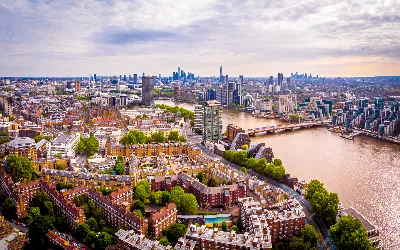- Selling
-
Buying
more
- Landlords
more
- B&R Landlord hub
- Management services
- Vacant management
- Landlord reviews
- Rental investment
- Furnishing and refurbishment
- Yield calculator
- Free online valuation
- Stamp duty calculator
- ROI calculator
- Landlord resources
- EPC guide
- Video hub
- Area guides
- Fees for landlord
- Lettings Laws
- Why choose Benham and Reeves
- Renting
- New homes
more
- House prices
- International services
International offices
China, Hong Kong SAR, India, Indonesia, Malaysia, Middle East, Pakistan, Qatar, Singapore, South Africa, Thailand and Turkey
Learn moremore - Contact
- News
- Contact
- About us
- My B&R
How much is your property worth?
Home
London property investment
Investors guide
The financial and political stability that London enjoys has translated into a property market that rewards forward planning and a willingness to look beyond areas of traditional affluence. Renting out your London buy-to-let property can augment a pension, provide a secure base for your child’s studies or springboard a lucrative portfolio. Whatever your investment goals are - preparation is key.
Investing in London property is first and foremost a business endeavour which, like all businesses, involves extensive research and planning. Done successfully, it provides the secure knowledge that your money is working harder than it would in a bank and that future generations will be left with an inheritance that is likely to have substantially increased by the time they grow up.
We are always happy to advise on buying a rental property, we’ve been letting properties in London for 60+ years so please feel free to contact any of our London letting offices where our experienced staff will be able to help.
Interested in buying London property?
Get in touch
PROperty+
Featured property development
North Gate Park, N15
Nestled in a leafy North London enclave, North Gate Park is a beautiful development centred around a three-acre communal garden. Residents are surrounded by lush green spaces and private outdoor areas, ensuring a peaceful retreat from the city’s pace. This thoughtfully planned development seamlessly blends a mix of restored heritage buildings and contemporary architecture. All residences, including one, two and three-bedroom apartments or three or four-bedroom houses, are designed with high-spec finishes, integrated appliances and spacious layouts.
Residents benefit from state-of-the-art on-site amenities, including a concierge service, cycle storage, a co-working space and a proposed nursery. Green Lanes is known for its vibrant mix of shops, cafés and restaurants and moments away.
Got more questions? Contact our director
Get in touch
Property sales accelerate as buyer choice increases in June
Zoopla reported an impressive 6% increase in UK property sales this June compared to last year, marking the fastest rate spike in four years. This growth in sales volume is directly linked to the availability of additional homes on the market, which is 14% more than a year ago. Low prices excite investors as sales get a boost According to Zoopla, average house prices in the UK increased by just 1.4% in the 12 months to May 2025. While this is higher than the 0.3% growth recorded last ...
Find out why overseas investors love London property
Click here


















 dartmouthpark@benhams.com
dartmouthpark@benhams.com